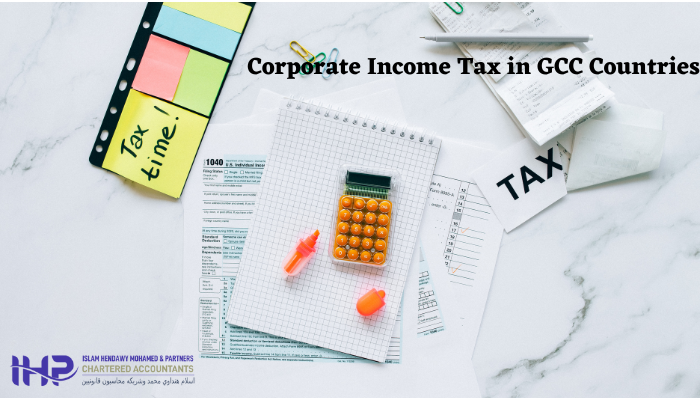
Corporate Income Tax in GCC Countries
Gulf Co-operation Council (GCC) came into force in 1981. The goal of the GCC is to uphold unity among its member nations and serve as a guide for tax regulation. The main objectives for the formation of GCC countries were for the common currency, common market and customs union, which were set forth by the GCC Supreme Council. IHPCA is the best and leading Chartered accountant service in Qatar.
Corporate income tax rates among states of Gulf Cooperation Council (GCC)
The United Arab Emirates (UAE)
The introduction of corporate tax in the UAE has forced businesses operating there to evaluate the extent of their compliance obligations and make the necessary preparations. When it was announced that the UAE corporate tax would go into effect on June 1st, 2023, many foreign investors expressed concerns about the new tax structure. However, when compared to other Gulf Cooperation Council nations, the UAE has the lowest corporate tax rate at 9%. (GCC).
Businesses can currently consult with tax agents in the UAE to stay informed about the corporate tax structure in the nation. Currently, the UAE corporate tax is applied to businesses’ taxable income in the following ways:
- 0% for taxable income that is less than AED 375,000
- 9% for taxable income that is more than AED 375,000
The Kingdom of Bahrain
Currently, the Kingdom of Bahrain only imposes a minimal 46% corporate tax. Only businesses engaged in activities like hydrocarbon exploration, production, or refining are subject to the Bahrain corporate tax. All other businesses involved in activities besides these are subject to a corporate tax at a rate of 0%. In addition, there are no taxes levied by the Kingdom on income, sales, capital gains, or estates.
The Kingdom of Saudi Arabia (KSA)
According to Saudi Arabia’s tax code, which took effect on July 30, 2004, resident capital companies and non-residents conducting business operations through a permanent establishment (PE) are both subject to a 20% corporate income tax. If a business was formed in accordance with the Saudi Companies Regulations or if its central management and control are located within the Kingdom, it will be regarded as a resident business.
Investors who are not Saudi nationals are typically subject to Saudi Arabia’s income tax regime. Contact the Best Chartered accountant firms in Qatar.
The Sultanate of Oman
Regardless of whether a business entity is a corporation or not, registered or unregistered, the rate of corporate income tax is the same across all categories of business entities in Oman. Except for Omani proprietorships (‘establishments’) and limited liability companies (llcs) that comply with the requirements for small and medium enterprises, Oman charges corporate tax at a rate of 15% to all taxpayers (smes).
The State of Qatar
One of the richest and most renowned countries in the GCC region with a 10% corporate tax is Qatar. Businesses that are wholly or partially owned by foreign entities and generate income from Qatari sources are taxed there. The percentage of the joint venture’s profit that the foreign partner owns determines the tax obligations of joint ventures in Qatar. Currently, Qatar does not impose any corporate income tax on businesses that are entirely owned by GCC and Qatari citizens who reside in Qatar.
The State of Kuwait
The corporate income tax rate in Kuwait is currently 15%. Companies wholly owned by citizens of Kuwait or other GCC nations are not subject to Kuwait’s corporate income tax. However, the amount of foreign ownership will determine whether GCC companies are subject to corporate tax or not. Kuwait only taxes foreign ‘corporate bodies’ that conduct business or trade in Kuwait directly or through agents on their profits and capital gains. IHPCA is the best and leading Chartered accountant service in Qatar. Contact us for more information.